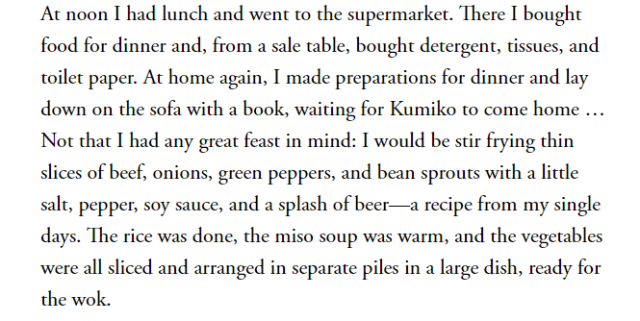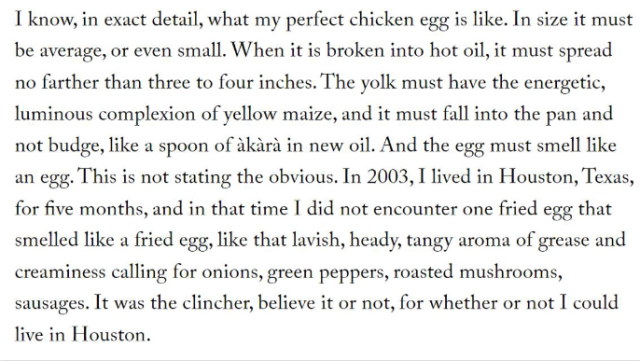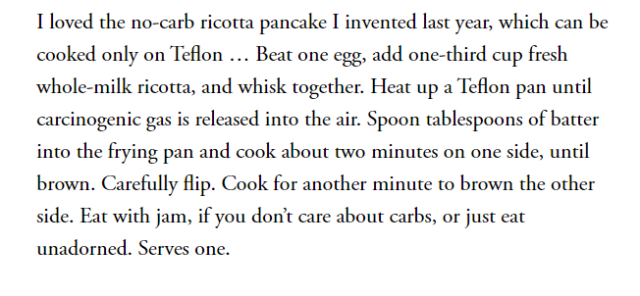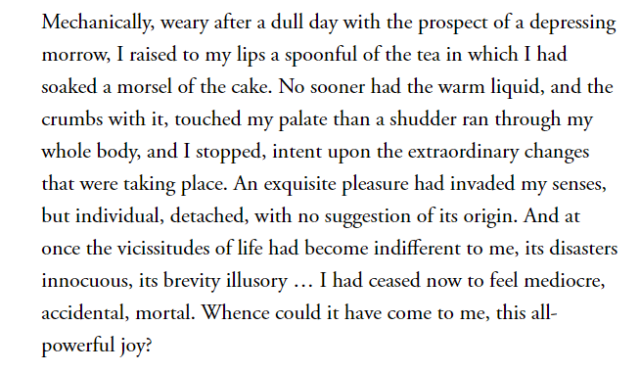Everything You Need to Know About Food Writing (tips + jobs + samples)
Do you want to know more about food writing? If yes, you are not alone. In recent times, writing about food has grown in popularity. Food writers are in high demand and food writing contests award the best entrants with cash prizes.
One thing you need to know as a food writer is that you can build a lucrative career in it. According to the latest statistics, food writers on the average make about $60,000 a year. Those who are new in this genre earn much less than those who have established their authority in the industry.
Perhaps it is for this reason that more people ask “what is food writing?” and “how can one become a food writer?”
In this article, we shall answer these questions and more. You’ll learn everything you need to know on writing about food, including:
- Tips for succeeding in the niche.
- How to land jobs as a food writer.
- What courses can help you succeed?
- And sample essays and stories that might serve as a guide.
First,
What is Food Writing
Food writing is a type of writing that has food as its central theme. It can manifest in different genres of writing, like fiction, nonfiction, or poetry.
Although the writing is about food, it aims to provide readers with an aesthetic experience that goes beyond food.
The rising popularity of this writing genre can be linked to the globalization of the food industry. A growing body of evidence also suggests that more people desire to experience worlds that are different from theirs. One way to accomplish this is to experiment with other cuisines. But some people go beyond eating; they share their culinary experiences with the world.
Earning a living from writing about food is another matter altogether. It requires a lot of expertise and strategic planning. But before we discuss these, let’s explore writing about food in detail.
Types of Food Writing
Food writing is just a subgenre. It can be written as fiction, creative nonfiction/essay and poetry. It is, therefore, very diverse and can take many shapes and forms.
Below are some of the more popular types of food writing.
Food Memoir
A food memoir is a type of writing about an author’s autobiographical experiences with food. Food memoirs comprise narratives about food memories from a writer’s perspective. Authors of food memoirs share their food memories and also their respective food cultures and identities.
Restaurant Review
We can describe a restaurant review as a type of writing that critiques and rates a restaurant on its quality of food, service, and prices.
Food lovers depend on restaurant reviews to make informed decisions on where to have the best food experience.
Restaurant owners also rely on restaurant reviews for information and feedback that will help them improve their food and services.
Restaurant review writing can come in different forms. While some restaurant review writers focus on the food served, others concentrate on the food environment and how the food is presented.
Recipe Writing
Recipe writing comprises a set of information and instruction on how to prepare a dish, drink, or food. Many people rely on food recipes as a guide to prepare food, dishes, or drinks they are not familiar with.
A recipe contains a recipe name, the ingredients, and instructions on how and when to combine the ingredients.
Some experts advocate that recipe writers should know their audience so they can communicate in a language they will understand.
Food History
Those involved in food history writing focus on the cultural, environmental, economic, and sociological impact of food on our lives.
Food history writers believe that issues surrounding food matter and go beyond what happens in the kitchen and at dinner tables. Reading food history writing can reveal much about a society’s cultural norms.
While some food writers have advanced degrees on the subject, others just write about their culinary heritage. One of the most important things to be a successful food writer is to have deep knowledge about what you are writing about.
There are different kinds of food history writing, including foodstuff history, dietary history, culinary history, nutritional history, and dining history.
How to Become a Food Writer
Research of successful food writers will reveal that many took different pathways to launch their writing careers.
However, there are some attributes that every writer needs to break even and become successful as a food writer.
Learn How to Write
The first port of call for anyone who wants to be a successful food writer is to learn and master the art of writing.
If you have great food experiences but do not know how to write, it will be hard to share them with the rest of the world.
Your writings about food must elicit positive emotions in your readers to make them want to experience it with you.
Improving your writing skills will make it easy to express your thoughts to your readers.
There are several ways to improve your writing skills and write eloquently. Many food writers choose to get a degree or certificate from an educational institution. Other writers opt for in-person or online courses. You can also improve your writing by reading and studying the writing styles of different food writers.
But whatever you do, don’t take the easy route of using online AI paraphrasing tools or AI writing tools to help you write better. Yes, they will help you create content faster, but your writing will be bland and you definitely won’t become a better writer by letting AI write for you when you feel stuck.
Study the Food Industry
Learning about the food industry is vital because it exposes a writer to the business, culture, and art of food consumption.
A deep knowledge of the creativity and traditions behind some food cultures and restaurants will set your writing apart.
Specialize
What they say about being a jack of all trades and master of none is true about food essays and writing.
People who write about food do that from various angles. Although there are several ways to write about food, it is better to focus on the area(s) where you have the strongest passion.
Determining the area or areas you want to focus on depends on where you have a strong comparative advantage. For example, if you have experience in the tourism sector, it will make sense to focus on food tourism.
You can write about your local dish, the various ways to prepare it, and its cultural significance. Experts believe that those with an emotional attachment to a particular food are in the best position to write about it.
There are many advantages when you focus on writing about the food you are familiar with. Writing about the food you know and enjoy gives you an edge over someone who is not familiar with it. Writing of any kind is difficult. Choosing a food niche you are passionate about will keep you writing when the going gets tough.
Employ your Descriptive Skills
One thing that sets successful food writers apart from the rest of the pack is their powerful descriptive skills.
Unlike video content, where the audience can see what is going on, the readers of food essays and writing depend on the writer’s descriptions.
The food experience goes beyond what you can taste with your tongue and includes other sensory organs of touch, smell, and hearing.
Experts believe food writers should focus on the five senses. A writer’s ability to use descriptive adjectives to explain how the senses perceive food makes reading enjoyable.
A writer should bring to life and describe to readers all the experiences involved in a particular food culture.
When a food writer captures and describes the food environment, the readers can visualize and partake in that experience.
Readers want to know how the food and the food environment look, smell, feel like, taste, and even sound during preparation. A writer can achieve all these through a careful choice of descriptive words.
Focus on those Behind the Food
Good food essays and writing is about food and those behind it. Therefore, you should not limit your writing to the food itself.
Writing about the people behind the food and the special relationship they have with the processes of making the food is vital.
If a particular restaurant has a chef who has a unique way of preparing a meal, it makes sense to explore and share that with readers.
Writing about food is fascinating when a writer explores the relationship and the personal connection people have with their food.
Research
The worst mistake you can make as a food writer is to misrepresent facts in your writing. Food is an aspect of culture and you cannot afford to offend people in your writing by misrepresenting food facts.
Misrepresenting facts about food is common among writers with little or no experience with a particular food culture.
One thing to do to avoid this error is to research your food subject. The research will reveal facts that may not be obvious to the casual observer.
Another thing you can do to avoid mistakes in your writing is to feature experts familiar with that food subject.
Successful food writers must be knowledgeable about their subject and be abreast of the latest food trends. Misrepresenting food facts can be controversial, especially if you are an outsider.
How to Start Writing About Food
So now you have gained the education and experience and are ready to write about food. Where do you start?
Below are a couple of ways to kick-start your writing career.
Start a Food Blog
Thanks to the liberalization of the internet, writers can freely share their works without the bottlenecks of publishing bureaucracies.
Blogging is the best way for aspiring writers to build their writing resumes. You will have enough materials to show prospective clients and employers when you consistently publish your writings.
Another benefit of blogging is that it provides a platform to connect and interact directly with your readers.
The feedback you get from your readers will give you great insights and help you improve your writing.
Pitch your Writings
Apart from blogging, sending your articles to both online and print food magazines is a great way to build your writing career.
Fortunately, we have a plethora of food-writing magazines constantly searching for new and interesting food articles.
As long as you do not give up after a few pitches, there are food magazines that will take a chance on you.
Food Writing Jobs
If you decide to be a food writer, there is no shortage of job opportunities for you in the food industry.
You can decide to be a freelancer and work at your own pace or pitch your tent with an organization.
Here are some writing jobs to pursue as a career.
- Food Journalist — work for news organizations or agencies and write about food trends in society.
- Food Writing Editor — can work in food publication organizations, and their primary responsibilities are to write, edit and review food articles.
- Food Content Writer — Thanks to the internet, content writing has become a lucrative career for many professionals. Most food content writers are freelancers who write content for websites and food blogs.
- Food Copywriter — Food copywriters specialize in creating persuasive content aimed at eliciting positive emotions about food products and services. The difference between a food content writer and a food copywriter is that the latter focuses on marketing a brand.
Food Writing Examples
A good food writer must use words that elicit a sense of tension and suspense in the reader. Below are some good examples.
The Wind-Up Bird Chronicle By Haruki Murakami
Murakami’s description of the food menu and the cooking process is simple and takes the reader through a mouthwatering reading experience. Below is an excerpt from his book “The Wind-Up Bird Chronicle”.

The Girl Who Was Afraid of an Egg By Yemisi Aribisala
In the excerpt below, Aribisala uses fresh metaphors and creative language to help the reader picture the color and perceive the aroma in the process of frying eggs.

I Remember Nothing, and Other Reflections, By Nora Ephron
What sets Ephron’s writing apart is the expertise with which she delicately blends sophistication and creativity. The following is an excerpt from her book “I Remember Nothing, and Other Reflections”

Swann’s Way By Marcel Proust
Proust’s use of descriptive words to explain the food process can make that experience memorable for the reader. Here’s a paragraph from Proust’s book, “Swann’s Way”.

Finally thoughts
Few activities bring people, families, and friends together more than when they enjoy food.
Food symbolizes much more than just a biological necessity. It is now part of our social, cultural, religious, and national identity.
If you love food and writing and would love to share your experience with the rest of the world, you can benefit from the tips in this article.
Although it seems daunting, especially for the uninitiated, you can start today by taking those first steps towards building a successful writing career.
All you need is a passion for food and writing and a desire to learn what it takes to succeed in the food writing industry.




